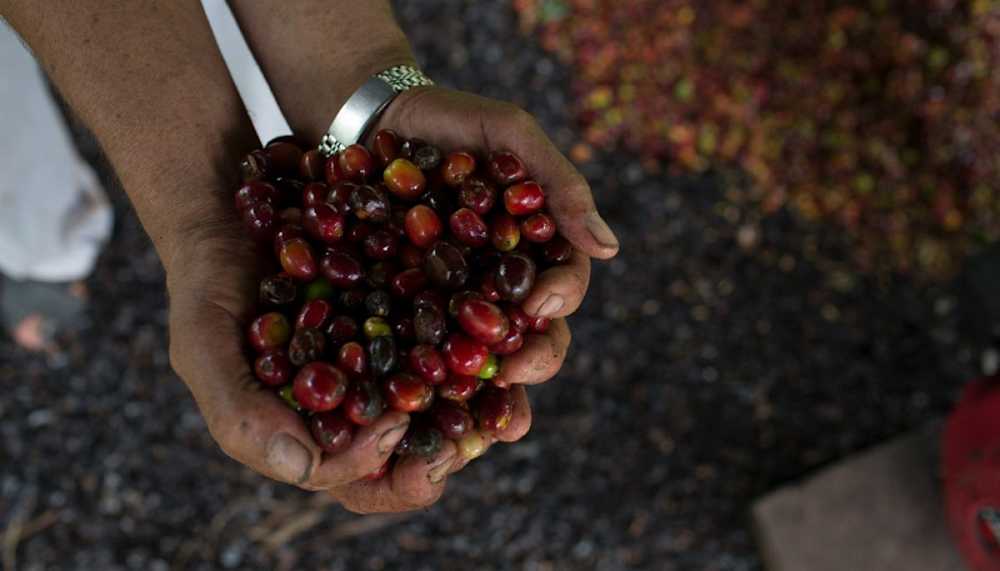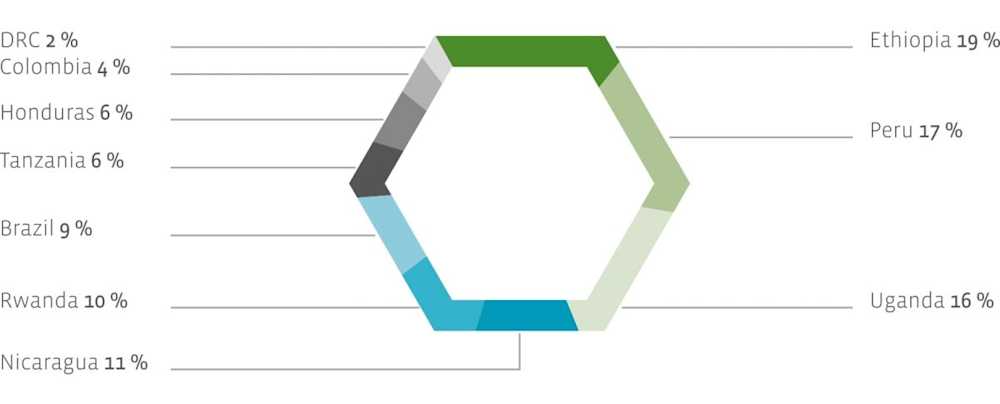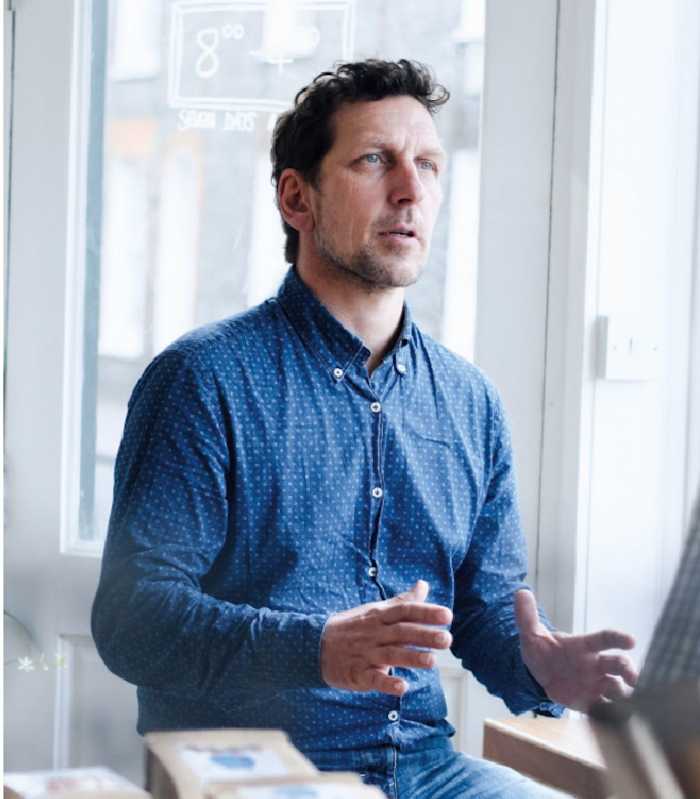Falcon Coffees’ blueprint for smallholder agriculture
Building Sustainability
With its ‘blueprint for sustainable coffee production’, wholesaler Falcon Coffees Ltd is helping participants in the supply chain operate profitably and achieve greater commercial success.
Coffee is one of the world’s most ubiquitous agricultural commodities, grown in one in every three countries. Yet the 30 million smallholder farmers who cultivate the coffee typically earn a pittance.
But it doesn’t have to be this way.
Optimising the supply chain
Optimising the supply chain creates new opportunities for farmers, trade organisations and investors in the coffee business, and is a core principle behind development investments.
responsAbility client Falcon Coffees Ltd does precisely this. It builds sustainable supply chains to ensure that coffee growers receive fair compensation for their product – a model that can also be transferred to other segments of the agriculture industry.

Falcon Coffees: building sustainability through collaborative supply chains
Established in the United Kingdom in 2008
Preferred supplier of specific origin coffee to major roasters, including Starbucks
Committed to achieving social and environmental impact through commercial enterprise
Falcon’s business model is based on collaboration with other industry players, whereby the various partners bring different but complementary skill sets and resources to the supply chain.
Partners include development-minded investors such as responsAbility-managed funds, non-governmental organisations, private coffee exporters, producer cooperatives and roasters.

SourceFalcon Coffees 2016.
Falcon’s operations can be grouped under three main categories:
DIRECT COFFEE TRADE – building supply chains from farmers in the developing world to major roasters
LOGISTICS AND QUALITY CONTROL – handling the logistics involved in transporting coffee from its point of origin to a roasting company in the United States, Canada, Europe, Japan, Taiwan or Korea
PRICE RISK MANAGEMENT – providing guidance to farmers and roasters on how best to manage their price risk, protecting them from losses linked to the coffee market’s volatility

Removing intermediaries
Matt Smith, Chief Operating Officer at Falcon Coffees, explains how Falcon operates a collaborative supply chain.
“When we started working in Bukavu in the Democratic Republic of the Congo, the coffee passed through multiple intermediaries and collection points – sometimes even across several borders – before it was delivered to the dry mill that would process and prepare it for export.
“These additional intermediaries charged a fee and were not adding any value to the final product. We removed the intermediaries and organised farmers into cooperatives that they could deliver their coffee to directly.
Coffee export in three steps
“This cooperative would then send the coffee to a local miller and exporter that we work with by providing working capital and price risk management. From the many, many steps previously needed to bring the coffee to export, we were now down to three.”

“Traceability allows every actor in the supply chain to see where value is created and how revenues are distributed.”
KONRAD BRITS, CHIEF EXECUTIVE OFFICER, FALCON COFFEES.
Tripled household income
Thanks to Falcon Coffees’ approach, the 4,200 smallholder farmers who work with them more than tripled their household income from 2013 to 2014. And Falcon itself has experienced strong growth, increasing its sales by 80% from 2010 to 2015.
The global coffee market
30 million smallholder farmers cultivate coffee globally
100 million people work in processing and distribution
Coffee consumption will rise most rapidly in developing countries in line with income growth
By 2020 coffee production will need to expand by 11% over current levels to keep up with growing demand
Long-term sustainability
The coffee industry’s long-term sustainability is under threat from:
Rising production costs
Deteriorating cultivation conditions due to climate change
Aging producer populations due to rural depopulation
Female coffee growers continuing to be disadvantaged compared to their male counterparts
By 2050, arable land available for production will more than halve ...
... and demographic shifts will cause demand for sustainably produced coffee to rise
Tackling the problem with collaboration
The threats to sustainable food production are too large for any single actor to take on alone. It’s imperative, therefore, that companies committed to social impact through financial success collaborate to tackle this challenge.
Millions of farming families stand to benefit from inclusion in the kind of collaborative supply chains that Falcon and its partners are pioneering.
Read the full report
Learn more about the world coffee market and Falcon Coffees’ sustainable supply chain for smallholder farmers in the responsAbility publication ‘Building sustainability through collaborative supply chains’.